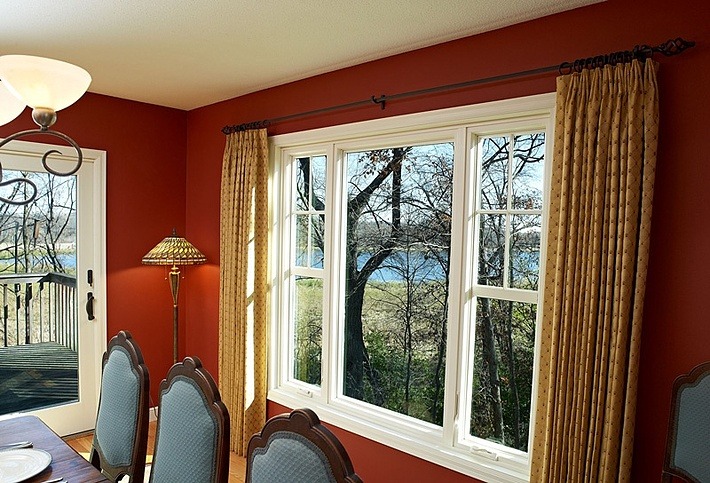MENU



Condensation on windows in your Dayton home not only disrupts your view, it can also cause damage to your windows and the interior of your home. Interior condensation is generally the result of excess humidity inside your home. Exterior condensation, however, is a form of dew, and windows simply provide a surface for it to accumulate.
Any time warm, moist air interacts with cooler surfaces, it causes condensation. Interior window condensation in your Dayton home may be a warning sign that something is wrong. The excess humidity that is causing the condensation could also be damaging other areas in your home. Cooking meals, showers and the normal breathing and perspiration of household members all contribute to the amount of water present in the air, as do everyday activities like mopping, washing dishes and doing the laundry. Plants and the burning of certain fossil fuels also increase indoor humidity.
Condensation on windows in Dayton homes occurs more frequently during the winter months when water vapor in the air comes into contact with surface temperatures that are lower than the dew point.Bay or bow windows often have more condensation than other window types. Drapes and window coverings may also be restricting air flow, contributing to condensation. Window units that feature metal components may transmit cold from outdoors to your inner glass, cooling the surface and causing a strip of condensation around the edges of your windows, which is not necessarily an issue.
The beginning of heating season often causes temporary window condensation in Dayton homes, which generally resolves itself after a day or two. Sharp temperature drops also frequently contribute to condensation. While interior condensation may be a concern, exterior condensation is normal and usually the sign of an energy-efficient window.

Excess interior window condensation may cause paint to peel from its sash and cause damage to the window frame. Installing insulation between the window head and platform can help to control excess condensation. Placing a fan near the window may also increase circulation, slowing window condensation in your Dayton home.
If window condensation is a consistent problem in your Dayton home, it may be time to consider replacement windows. Renewal by Andersen Dayton provides full-service window replacement services and will partner with you each step of the way, from choosing the right design to installation and maintenance. Contact our team to schedule your in-home consultation and to learn more about the benefits of energy-efficient replacement windows.